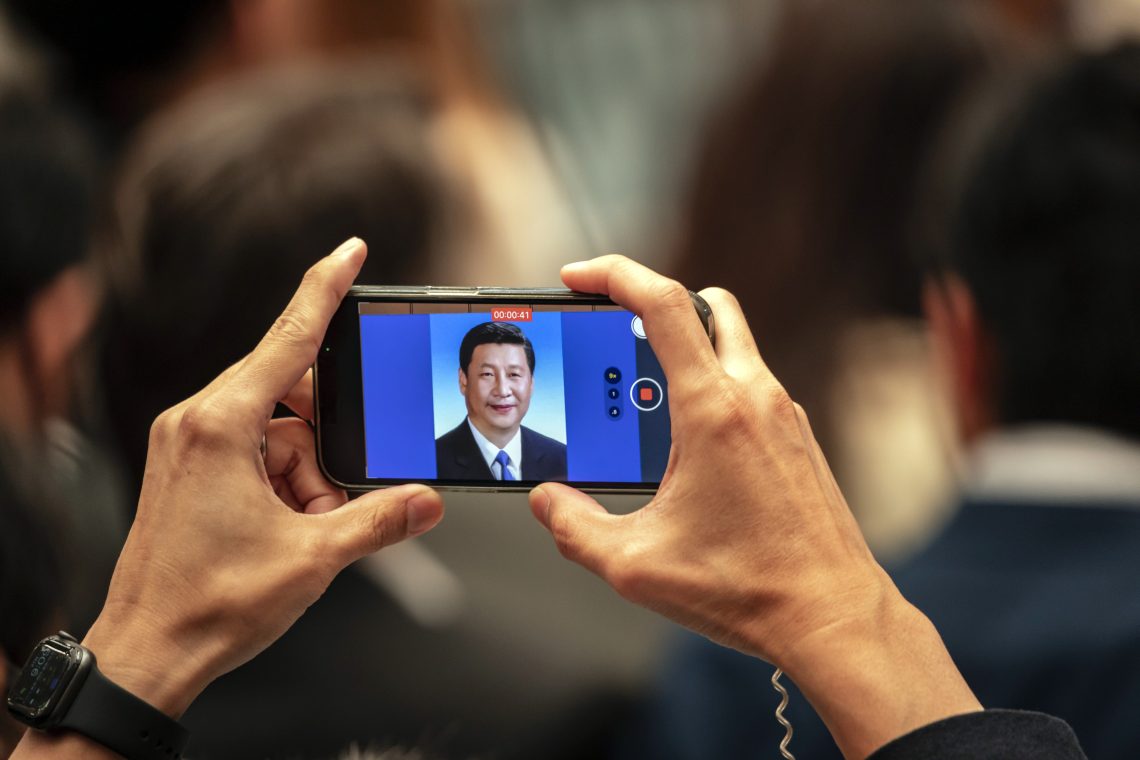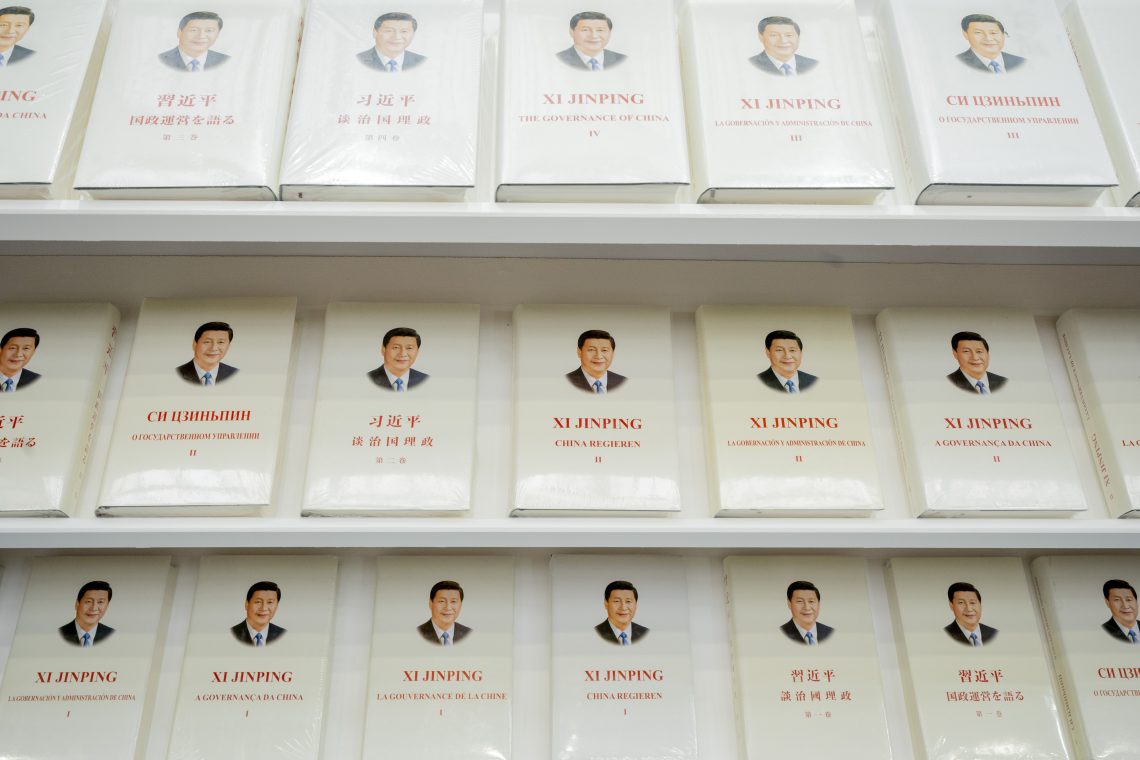Xi Jinping’s volatile foreign policy
China’s diplomatic strategy is changing rapidly as Beijing juggles relations with the United States, Europe and Russia amid economic uncertainty.

In a nutshell
- China is trying to avoid alienating the West while keeping ties with Russia
- European countries remain divided and uncertain over policy with Beijing
- The war in Ukraine may determine the future of Xi’s foreign policy
After consolidating his power at the 20th Party Congress, President Xi Jinping set about rectifying the fallout caused by his unpopular zero-Covid policy and other flawed economic strategies. The initial plan was to project a friendly facade to the West to attract more foreign capital.
Beijing opted to improve relations in the hope that this would prevent Washington from crippling the Chinese technology industry, and would give China some wiggle room on other issues, such as Taiwan. Last November in Bali, President Xi met with United States President Joe Biden and both committed to de-escalate tensions. Measures to ease bilateral relations, such as Secretary of State Antony Blinken’s visit to China in early February this year, were agreed upon. Mr. Xi even made sure to arrange a personal dinner with Mr. Blinken during his visit.
These efforts, however, have been undermined by events since February. First, a Chinese military spy balloon encroached on American airspace. The U.S. not only downed the balloon but also disclosed information about its origins. This has greatly irked President Xi, since the incident tarnished China’s global reputation, especially in Southeast Asia.
Another source of frustration for the Chinese president is the U.S.’s recent tightening of semiconductor regulations. In his view, this amounts to stripping China of its right to use advanced technologies and products from the West. What is even more unsettling for President Xi is that the U.S. has essentially transitioned from a stance of strategic ambiguity to one of strategic clarity in its Taiwan policy. Not only has this resulted in increased arms shipments to Taiwan, but it has also led to the mobilization of Japan, South Korea and the Philippines, improving Washington’s defensive position in the Taiwan Strait.
A new foreign policy approach
In light of these developments, President Xi resolved to enact a series of substantial shifts in his foreign policy. First, he decided to adopt a confrontational stance against the U.S. and force it to recognize its missteps. Consequently, Chinese government officials have taken every opportunity to publicly castigate Washington. At the same time, Beijing has consistently rejected U.S. proposals to establish a hotline at the highest level. Following the spy balloon incident, Chinese officials have intentionally created difficulties for several U.S. companies operating in China.
More by Junhua Zhang
The U.S.-China chip race heats up
A shift is taking place in U.S.-China relations
Simultaneously, President Xi has extended overtures to Europe, noting that leading countries like France, with their emphasis on strategic autonomy, are more likely to be China’s partners. In his view, the European Union is an empty shell devoid of tangible power. To win European countries’ goodwill, the head of the Chinese mission to the EU, Ambassador Fu Cong, declared that the “no limits” partnership China agreed to with Russian President Vladimir Putin in February 2022 was nothing more than diplomatic rhetoric.
China proposed rescinding sanctions imposed on the EU the previous year, provided that the EU would in return ratify the China-EU investment agreement. French President Emmanuel Macron’s visit to China further convinced President Xi that his European strategy was effective. Mr. Macron not only led a delegation that secured substantial business deals with China, including the procurement of 160 Airbus aircraft, but also agreed to jointly serve as mediators in Russia-Ukraine negotiations following this year’s Ukrainian counteroffensive.
Meanwhile, President Xi has further solidified his position as a strategic ally with Russia, particularly following his decision to take a hard line with the U.S. In a demonstrative move, he made a special visit to Moscow in March. For economic reasons, and under pressure from Western countries, he chose not to support Moscow in the way the West had feared – such as openly sending large quantities of weapons – but rather through other means. These included buying more Russian oil and contributing to the improvement of Russia’s military navigation system. He also instructed Defense Minister Li Shangfu to visit Moscow on April 16 to discuss military cooperation. Representing Xi Jinping, Mr. Li specifically lauded President Putin for his “contribution to the maintenance of world peace.”

Fostering ties with Russia and the EU
President Xi’s inclination toward Mr. Putin is not only evident in these actions, but also in his long-standing disregard for the Ukrainian president. For a long time, he avoided engaging directly with President Volodymyr Zelenskiy. China’s Ambassador to France, Lu Shaye, on April 21 of this year made the following remark: “Even these former Soviet countries don’t have an effective status under international law because there is no international agreement under international law to concretize their status as sovereign countries.”
Upon hearing the backlash against Mr. Lu’s comments, President Xi realized that these remarks risked undoing the diplomatic atmosphere he had painstakingly cultivated to distance Europe from the U.S. Recognizing the need for damage control, the Foreign Ministry distanced itself from Ambassador Lu on April 24, stating that his comments did not represent the Chinese government’s position. Mr. Xi also had an hour-long phone call with President Zelenskiy. However, mindful of President Putin, Mr. Xi made a point to inform Russia prior to the call, even providing advance notice of what he planned to say to President Zelenskiy. Evidently, he did not wish to displease the Kremlin.
Beijing needs Europe and hopes that the push for strategic autonomy will allow it to maintain close ties. Despite the recent recovery, China’s economic situation remains precarious. With the U.S. deciding to wage a semiconductor war against China, much of the “high-quality” growth that President Xi had promised is at risk. In this context, Europe may become a vital lifeline for him, not only for the equipment, raw materials and chips, but also for technologies in other sectors.
Once the war in Ukraine is over, Beijing also hopes to play to its strengths (manufacturing more cheaply than the West) and make a fortune in rebuilding Ukraine as part of the Belt and Road Initiative.
In an effort to ingratiate itself with the EU, on April 26 – the same day President Xi spoke with President Zelenskiy – China voted in favor of the United Nations General Assembly resolution on cooperation between the UN and the Council of Europe. During the session, China initially abstained from a vote on Russian aggression against Ukraine, suggesting it was not relevant. However, just two minutes later, China diverged from Russia and voted in favor of the overall resolution, marking a quick and deliberate shift in stance.
Still, China is not always soft on Europe. When the EU considered sanctions against Chinese companies that supported the Russian war effort, Beijing threatened to cut off exports of solar and wind power to Europe. Chinese leadership also responded to the German education minister’s visit to Taiwan by canceling an official visit from German Finance Minister Christian Lindner.
Scenarios
It can be argued that President Xi’s assertive diplomacy over the past few months has achieved some success for China. For instance, they have forged a loose alliance against the U.S. Public discussions in China hint at the possibility that Beijing has not entirely dismissed the prospect of Russian forces being overcome in Ukraine, potentially leading to President Putin’s downfall. In this scenario, China would need to consider how to sustain relations with a post-Putin Russia to ensure the stability of energy supplies and trade.
Sino-European relations remain at a crucial point. European nations are considering a more practical and autonomous approach toward China. Germany, as a significant European power, has yet to develop its China strategy due to differing views among parties. Additionally, a German-Chinese government consultation meeting will take place in Berlin on June 20. China will undoubtedly seize these opportunities to further encourage Europe to maintain its independent stance.
Before long, however, President Xi Jinping may realize the futility of his attempts to sever European countries from the U.S., even as Europe strives to develop a distinct China strategy. Eventually, he may have to grudgingly accept the Biden administration’s approach: a tough stance on technological competition, Taiwan and the South China Sea, coupled with cooperation in other areas. Recently, after a period of cool relations, Beijing has permitted U.S. climate envoy John Kerry and Treasury Secretary Janet Yellen to visit China, and Secretary of State Antony Blinken will also attend a meeting on June 18. But the competition between China and the U.S. will remain intense regardless of any “normalization” efforts. Beijing’s attitude toward both the U.S. and Europe will depend on various factors. The outcome of a significant counteroffensive in Ukraine will be a key consideration. If successful, it might encourage President Xi to recalibrate his foreign policy toward a more constructive global competition rather than a tense Cold War approach.
Conversely, if Ukraine achieves only modest results, and if the West, particularly the U.S. and EU countries, struggles with rising energy prices and inflation, Beijing may feel encouraged to solidify an even stronger “united front” against the West. This would also make it more likely for certain European states, like France, to adopt a softer stance on China.








